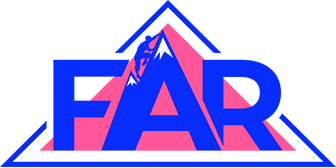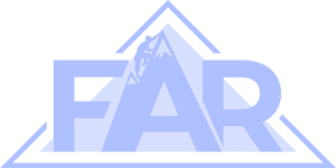Addiction is a complex issue that impacts millions of lives in the United States. Driving Under the Influence (DWI) and Driving While Intoxicated (DWI) as it is called in North Carolina, are serious offenses often rooted in substance abuse. The penalties for DWI in North Carolina are severe and their application is strict.
At Focused Addiction Recovery (FAR) we understand that overcoming these challenges is not a one-size-fits-all process. Our DWI treatment program which is worked in conjunction with our duly licensed Substance Abuse Services for DWI Offenders partners, is designed to address the unique needs of individuals who are dealing with substance abuse issues related to DWI offenses. Our program has options that will meet the requirements necessary to address DWI offenses.
What is
DWI Treatment?
DWI treatment with FAR and its clinical partners is a specialized program tailored to those who have been charged with or convicted of DWI offenses. The program provides a supportive environment to address both the legal and personal implications of these charges.
While a DWI offense may be a wake-up call for some, it is often a symptom of a larger substance abuse issue. FAR goes beyond the legal requirements of addressing the offense, by delving into the root causes of the addiction and providing a path to recovery.
What Can
Someone Expect in the DWI Treatment Program?
At FAR, DWI treatment program offers a variety of treatment levels. The most intense level is the Partial Hospitalization Program (PHP/SACOT) level of care which operates at a minimum of five days per week, providing structured programs of treatment for a minimum of five hours per day. The next level is Substance Abuse Intensive Outpatient Program (SAIOP) it operates a minimum of three days per week, providing structured outpatient treatment for a minimum of three hours a day. The least intensive is Outpatient relapse prevention consisting of individual therapy and group therapy that meets weekly.
Individual Therapy: During individual therapy, clients have one-on-one discussions with a therapist about their struggles with substance abuse and the circumstances surrounding their DWI offense. This personalized attention allows for a deep exploration of the issues at hand, the development of coping strategies, and the setting of recovery goals.
Group Therapy: Group therapy offers clients a safe space to discuss their experiences and challenges with others facing similar situations. This shared understanding fosters a sense of community and mutual support, helping individuals realize they are not alone in their journey.
What Therapies are Available in the DWI Treatment Program?
FAR’s DWI treatment program incorporates a variety of therapeutic approaches to ensure comprehensive treatment.
Evidence-Based Treatments: The FAR DWI program includes evidence-based treatments which help individuals identify and change negative thought patterns that contribute to their substance abuse.
Cognitive-Behavioral Therapy (CBT): CBT is a core method of addiction treatment. It helps clients identify negative thought patterns that lead to unhealthy behaviors, such as substance abuse and equips them with skills to replace these thoughts with healthier alternatives.
Dialectical Behavior Therapy (DBT): Dialectical behavior therapy is a structured program of psychotherapy with a strong educational component designed to provide skills for managing intense emotions and negotiating social relationships.
Person-Centered Therapy (PCT): operates on the humanistic belief that the client is inherently driven toward and has the capacity for growth and self-actualization.
Support Groups: Support groups provide an informal setting for clients to discuss their experiences with addiction and DWI offenses. These groups can serve as a long-term community of support, fostering a sense of belonging and mutual understanding that extends beyond the program.
Family Therapy: Substance abuse does not only affect the individual but also their family and loved ones. Family therapy aims to mend relationships damaged by addiction and teach family members how to support their loved ones in their recovery journey.
Holistic Therapies: FAR recognizes that recovery is a whole-person process. As such, we offer or direct one to holistic therapies such as art classes and exercise programs to help clients develop new interests and stress-relief mechanisms, further supporting their recovery.
Contact FAR for DWI Treatment in North Carolina
DWI offenses are often a sign of underlying substance abuse issues. At FAR, we’re committed to helping individuals navigate the path to recovery, equipping them with the tools and support necessary to overcome their addiction and avoid future DWI offenses. Please contact us at 910-390-8229 to learn more about our DWI treatment program and start your journey toward recovery today.

